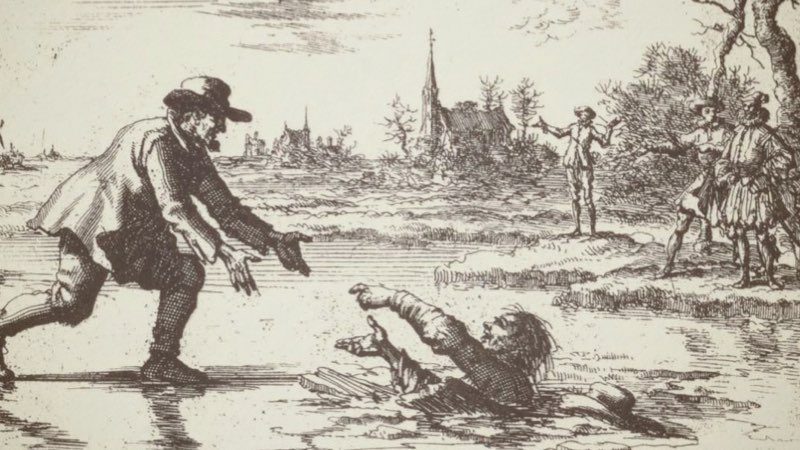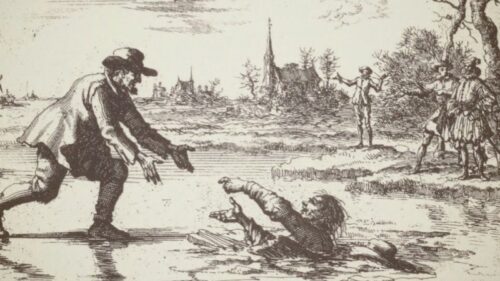-
3. Of the Church’s Continuance
In What Points the Church of God has Always Continued the Same God has always ordained teachers in His church, and, therefore, always caused His will to be proclaimed to the people; which commenced principally in the days of Enos, the grandson of Adam; for then began men to call upon the name of the Lord. 4:26. Enoch, the seventh from Adam, preached of the judgment and the great day of vengeance of the Lord. Jude vv. 14, 15. Abraham, the father of the faithful, preached of the name of the everlasting God. Gen. 21:33. Moses preached of the faithfulness, goodness, and righteousness of God; so that his doctrine dropped as the rain, and his speech distilled as the dew. Deut. 32:2-5. David preached of…
-
2. Of the Divine Service of the Church
Of the Divine Service of the Church The state and divine service of this church have varied from the beginning according to the different periods in which it existed and flourished. From Adam to Noah, from Noah to Abraham, from Abraham to Moses, from Moses to Christ, from Christ to the end of the world, God ordained, for each of these periods, different customs, as regards the external divine service of this church; also different signs, seals, and appurtenances; though it is, was and shall be, the same church, the same people, and also the same God whom they served, still serve, and shall serve unto the end. Before Adam fell, divine service had no respect to Christ; He had not yet been presented to…
-
1. Of the True Church of God
Of the True Church of God, Its Origin, Progress, an Immovable Stability, through all Times [As in the following work a survey is given, to some degree, of the succession and establishment of the church, we find it expedient in order that the same may not be misinterpreted, and because some of our good friends have requested and besought us (though we have intended to leave it as it was), to precede, by way of introduction, that which follows, by our exposition of the true and the false church, and of their respective good and evil succession and progress; also, to state the views we hold in regard to the right of succession. We will, therefore, begin here, and, so as not to be tedious,…
-
Martyrs Mirror: Editor’s Note
The following work is set forth in its entirety, including footnotes which have been added in brackets either preceding or following the reference points. The first 18 chapters provide an overview of Gospel history, beginning with Adam and Eve and proceeding to the present time of the publication, 1660. The remaining chapters are devoted to a detailed record of the sufferings and martyrdoms of God’s people through the ages who have been identified as Baptists. Although the author identifies the history of God’s people as Church history, we believe a more accurate designation would be Christian history. Nevertheless, the sentiments of the author are well intended and his overview of history is informative to the reader. This work of well over 1000 pages is one…
-
Martyrs Mirror: Introduction
Summary of the Following Work This work comprises two books, each of them containing a different and independent topic. The first is a treatise of the holy baptism and of that which pertains to it. The second is a historical account of the holy martyrs who suffered on account of baptism, or, generally, for the testimony of Jesus Christ. These two topics have been briefly, yet not less clearly, treated, throughout, in every century, from the days of Christ up to our present time; and this order has been followed: through every century first an account is given, through faithful and authentic authors, of the subject of holy baptism, and the proper administration of the same during that time; to which we have each time…
-
Martyrs Mirror: To The Readers
Good friends and fellow citizens: Of old, among the heathen, the greatest and highest honors were accorded to the brave and triumphant warriors, who, risking their lives in the land of the enemy, conquered, and carried off the victory. [The victors at the Olympic games (so-called from Mount Olympus in Greece, where they were held) were crowned with Wreaths of oak and laurel, which was considered a great honor.] Thus Homer, the foremost of the writers of heroic poetry in Greece, has, in twenty-four books, extolled and embellished with many eulogies the warlike deeds of Ulysses. Quintus Curthts described, in ten books, the deeds of Alexander, the son of Philip of Macedonia: how triumphantly he conquered and subjugated Europe, Asia, India, and the countries bordering…


